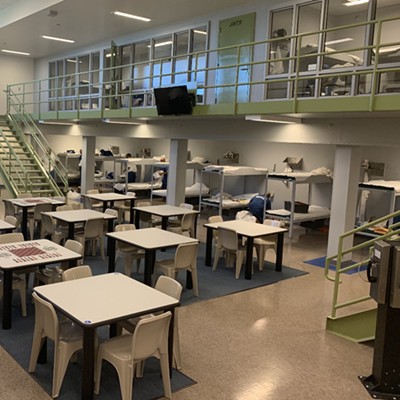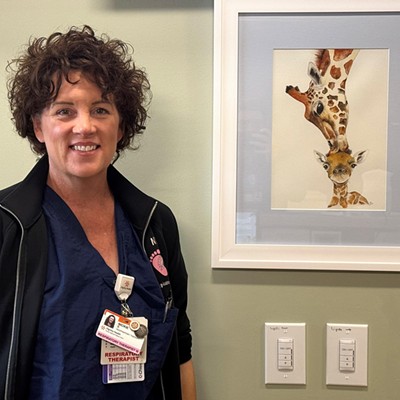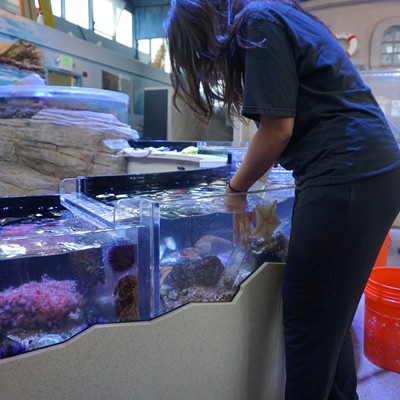After a recent visit to a border facility that temporarily houses unaccompanied minors, U.S. Rep. Salud Carbajal (D-Santa Barbara) said he noticed a large improvement in conditions when compared to facilities he visited in the past. However, Carbajal and local immigration justice advocates both say there is still work to be done.
“I can tell you, having visited the Tornillo detention center years back, and comparing that to this experience, to a great extent, it’s day and night,” Carbajal said during a March 25 press briefing, a day after his visit to the Carrizo Spring Influx Facility in Texas. “The facility back then, it was a tent. … In this case, this structure was a hardscape, actually they were dormitories, bunk beds, and it was a much better facility.”
Other improvements that the Congress member noted include that he received a detailed memo prior to his visit, whereas last time he received little to no communication. He said the services being provided to the children, such as educational and medical resources, were much improved.
“In the past, there were no medical physicals being done,” he said. “This time, there’s medical physicals being provided within the first 48 hours of children arriving.”
While Carbajal commended these improvements, he said there is still infrastructural work to be done so that the unaccompanied minors can leave these facilities sooner. He said the system is still overwhelmed.
“They need to … stand up these facilities as soon as possible,” Carbajal said. “No children should be held in any type of facility longer than they need to. That’s always concerning, whether it’s the previous administration or this administration.”
Carbajal said there were 766 children at the facility, which has a capacity of 950.
According to Gina Whitaker, a member of SLO County-based organization Allies for Immigration Justice, there is a surge in children arriving unaccompanied at the border. Allies for Immigration Justice works to support immigrant populations on the Central Coast.
“There’s so many more children arriving now than there had been before,” she said. “Although, this is not new: There have been surges like this in 2019 and 2014, as well.”
From Whitaker’s perspective, despite the improvements made to border facilities, the root of the issue is still not being addressed.
“The system is punitive. It’s decades old, it’s inadequate, and it needs to be dismantled,” she said. “The administration seems to be showing us that they’re willing to send children to sponsors rather than detaining them, which is a start. … But basically, Biden has inherited this system that’s inadequate and needs reform.”
The root of the issue, Whitaker said, is “a result of our U.S. government and U.S. corporations, for centuries, destabilizing political, social, and economic systems” in Central American countries.
“I don’t feel we can ever do this topic justice if we don’t acknowledge that the actions our government and U.S. corporations have taken, over those centuries, has destabilized and contributed to the forces that are now driving migration from those countries,” she said.














